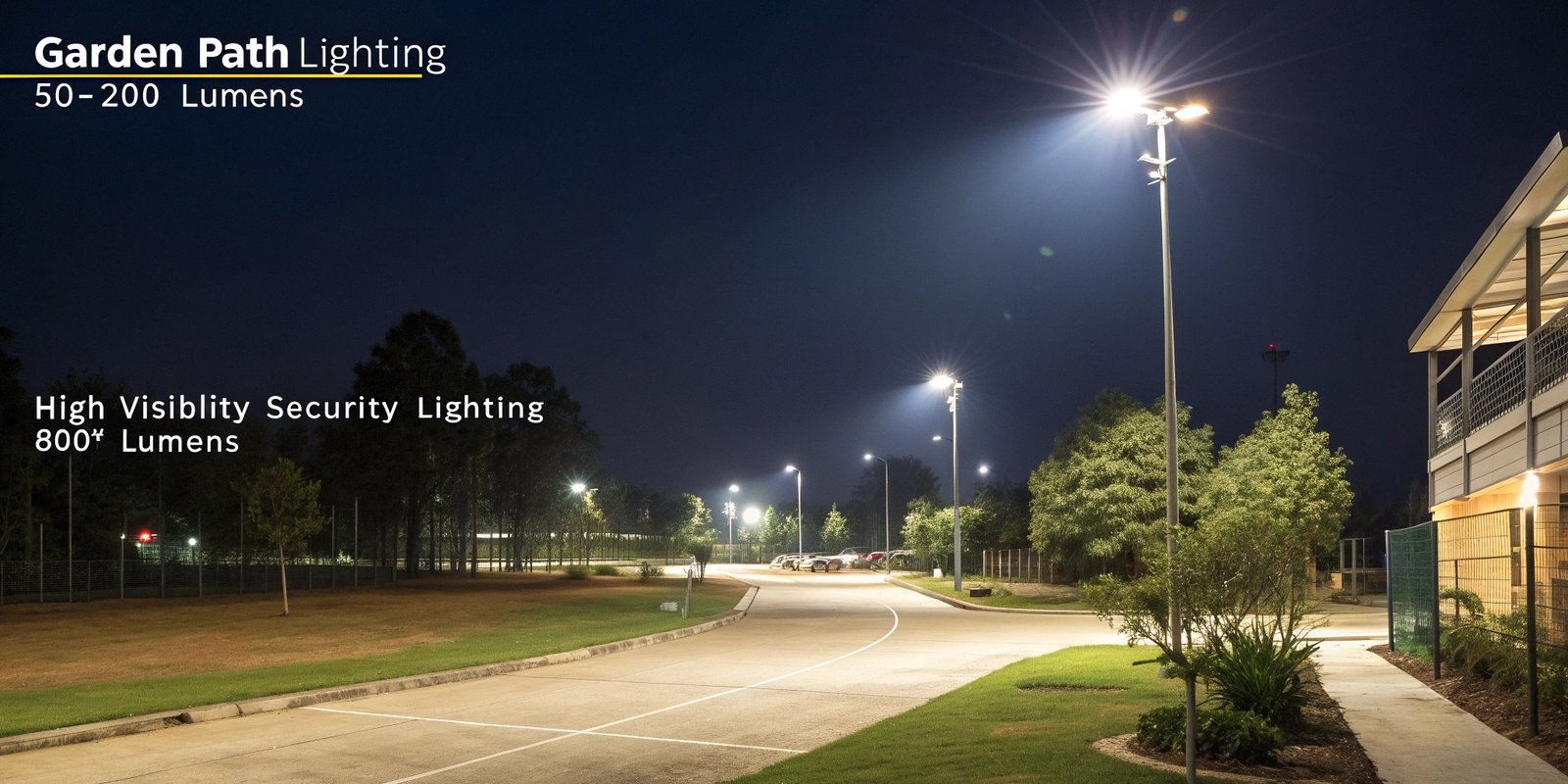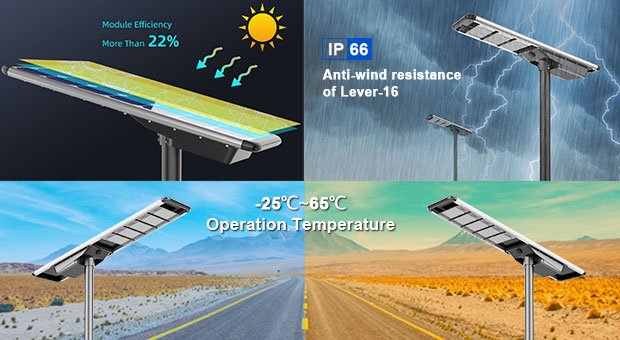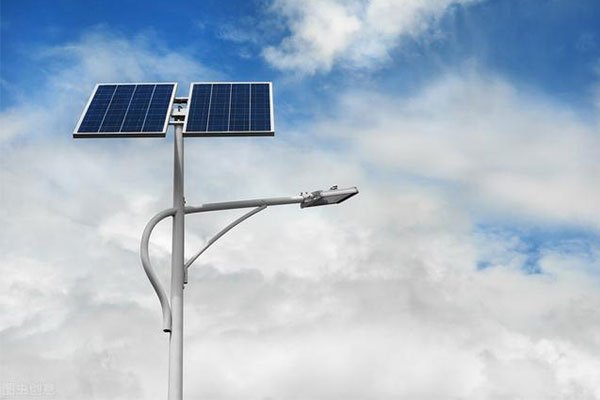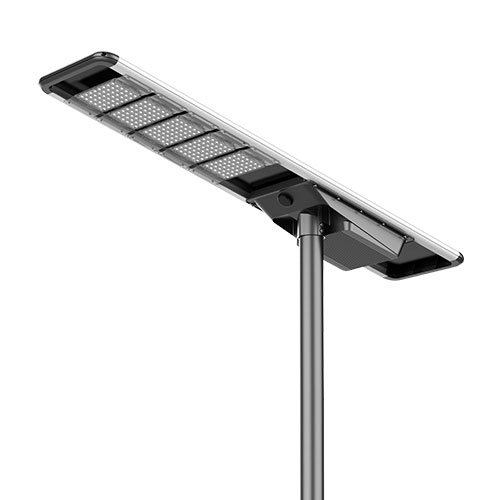Outdoor lighting is essential for aesthetics, safety, and functionality. Solar street lights offer energy efficiency, cost savings, and environmental benefits, making them a great choice.
To choose the best solar street light, consider factors like bulb type, brightness, solar panel efficiency, battery capacity, and durability. This guide will help you make an informed decision.
Proper selection ensures longevity and optimal performance. Let's dive into the key factors to consider when buying a solar street light.
Factors to Consider When Buying a Solar Street Light
1. Bulb Type and Size
The type of bulb affects efficiency and lifespan. LED bulbs are the best choice due to their high efficiency, long lifespan, and low heat output.
Comparison of Common Bulb Types
| Bulb Type | Efficiency | Lifespan | Heat Output |
|---|---|---|---|
| Incandescent | Low | Short | High |
| CFL | Medium | Long | Medium |
| LED | High | Longest | Low |
Choosing the Right Bulb Size
- Small bulbs (C3-C5): Best for decorative garden lights.
- Large bulbs (C7-C9): Ideal for street and driveway lighting.
2. Brightness (Lumens)

Lumens determine the brightness level. Choose the right lumen output based on the application.
Recommended Lumens for Different Areas
| Application | Recommended Lumens |
|---|---|
| Stair lights | 12-100 lm |
| Wall lights | 50-200 lm |
| Landscape lights | 50-300 lm |
| Small garden (50㎡) | 1600 lm |
| Medium garden (150㎡) | 2800 lm |
| Street lighting | 5000+ lm |
Weather conditions and solar charging efficiency can impact brightness. Choose a solar light with good battery storage for consistent lighting.
3. Lighting Modes
Different lighting modes offer flexibility for various applications.
Common Lighting Modes
- Dimming Mode: Ideal for relaxed night settings.
- Motion Sensor Mode: Activates when movement is detected, enhancing security.
- Color-Changing Mode: Great for decorative purposes.
Smart solar lights allow remote control and automatic mode switching, offering convenience and energy efficiency.
4. Solar Panel Type

The solar panel affects energy conversion efficiency and durability.
Types of Solar Panels
| Solar Panel Type | Efficiency | Cost | Suitability |
|---|---|---|---|
| Monocrystalline | High | Expensive | Best for long-term use |
| Polycrystalline | Medium | Affordable | Good for moderate needs |
| Thin-Film | Low | Cheap | Works in low-light areas |
For the best performance, choose monocrystalline panels with a high conversion rate and durability.
5. Battery Type and Capacity
Batteries store energy for night usage and determine runtime.
Battery Type Comparison
| Battery Type | Lifespan | Charging Speed | Maintenance |
|---|---|---|---|
| Lithium-ion | Long | Fast | Low |
| Nickel-Cadmium | Medium | Slow | Requires maintenance |
| Nickel-Metal Hydride | Short | Medium | Medium |
| Lead-Acid | Long | Slow | High maintenance |
For reliable operation, opt for high-capacity lithium-ion batteries with fast charging and long lifespan.
6. Additional Features

Extra features enhance usability and performance.
- Motion Sensors: Improve security and save energy.
- Timers & Dimmers: Optimize energy use and create ambiance.
- Smart Connectivity: Remote control via mobile apps.
- Color-Changing Effects: Ideal for decorative settings.
7. Durability and Waterproof Rating
Durability depends on materials and waterproof ratings.
IP Waterproof Ratings
| Rating | Protection Level | Usage |
|---|---|---|
| IPX4 | Splash-resistant | Basic garden use |
| IPX6 | Resistant to heavy rain | Outdoor environments |
| IPX7+ | Can withstand immersion | Extreme weather conditions |
For outdoor reliability, choose lights with at least IPX6 waterproof rating and rust-proof materials like stainless steel or aluminum.
8. Price Considerations
Higher price does not always mean better quality. Evaluate performance and features before purchasing.
Price vs. Performance Guidelines
- Budget-friendly models: Suitable for decorative lighting.
- Mid-range models: Balance between quality and cost.
- High-end models: Best durability, brightness, and smart features.
9. Warranty and After-Sales Support

Warranty reflects product reliability. Look for at least 1-year warranty from reputable brands. Reliable brands often offer longer warranties, ensuring product longevity and customer satisfaction.
FAQs
1. What is the ideal lumen output for a solar street light?
- 50-200 lumens: Suitable for garden and pathway lighting.
- 300-700 lumens: Ideal for security and motion sensor lights.
- 800+ lumens: Recommended for driveways, courtyards, and high-visibility areas.
2. What wattage should I choose for a solar light?
- 20-90W: Suitable for residential lighting.
- 35-50W: Ideal for most outdoor applications.
3. What are the best solar light brands?
- Brightech: Known for durability and brightness.
- URPOWER: Offers affordable and reliable solar lights.
- LITOM: High-quality LED solar lighting solutions.
Conclusion
To choose the best solar street light, prioritize LED bulbs, monocrystalline solar panels, and high-capacity lithium-ion batteries. Durability and waterproof ratings ensure long-term performance.
Selecting the right brightness and lighting mode for your needs can maximize efficiency. Always compare price and performance to get the best value.







